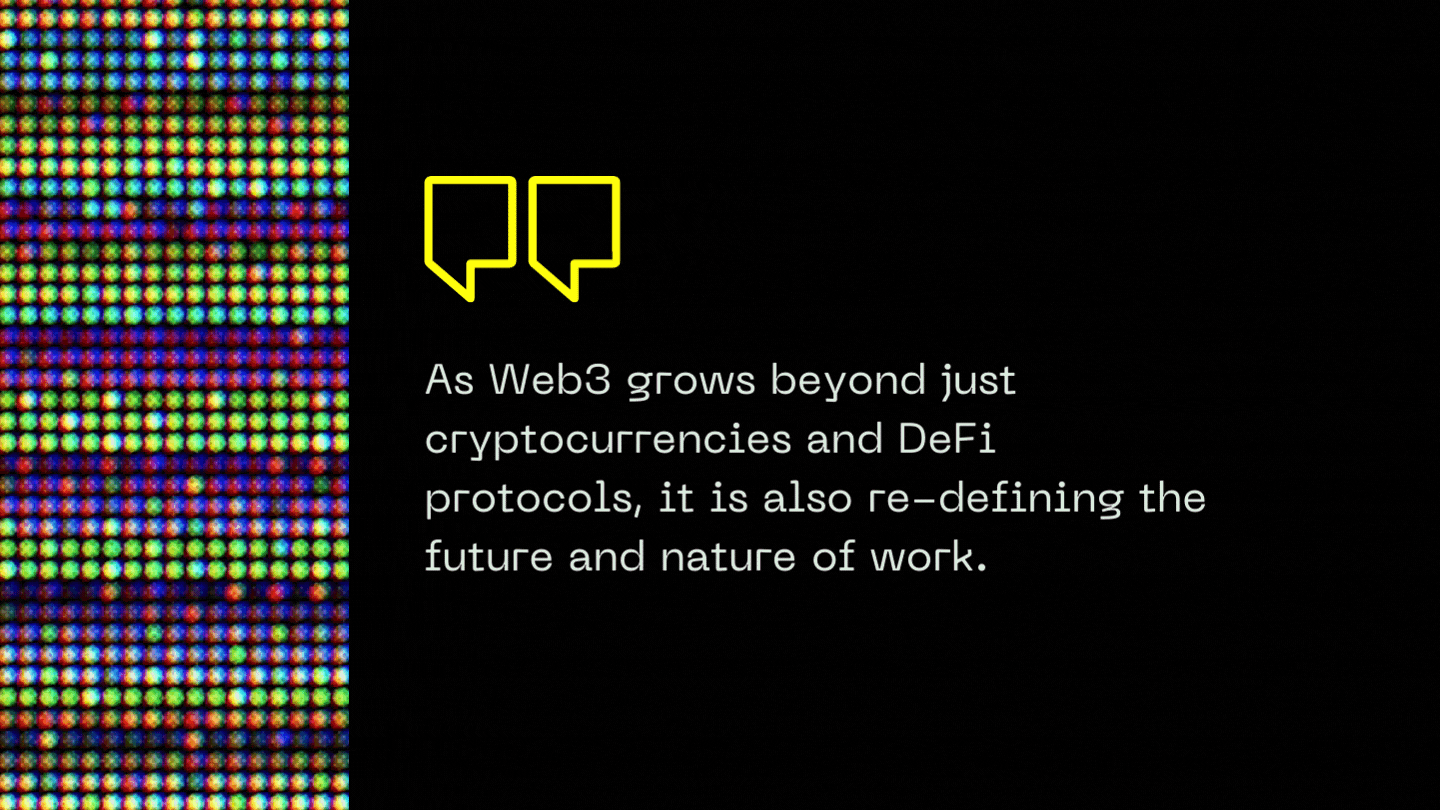If you’re dreading the idea of going back to the office, you’re not alone.
If you’re dreading the idea of institution-led Metaverse offices where your HR manager will yell at you for not properly clocking in by the 8-bit water cooler, you’re also not alone.

Is this Metaverse hell?
This is not another article about the “Future of Work,” as analyzed through the lens of the very institutions that have made working so miserable in the first place. This is a call to redefine our relationship to work according to the principles of web3.
In the past two years, there have been numerous discussions and conversations about what work will look like in the future, motivated partially by macroeconomic trends such as The Great Resignation, the pandemic-layoffs-to-post-pandemic-employee-shortages pipeline, and increased worker burnout. Healthcare workers quit en masse. Web 2.0 tech companies can’t hire anyone. Digital nomadism is becoming cool again.

When the modern economy fails to provide adequate rewards (e.g. wages, healthcare, housing, childcare, basic security) for increasing worker output, it is no surprise that former employees and college grads are rejecting the classic 9-to-5. Why work when the rewards are minimal?
But within this failure there is massive opportunity: as workers quit jobs they feel constrained in, they are more often than ever pivoting to freelancing, gig work, or flexible work. People don’t want to stop working forever. They want the freedom to determine what they work on.
And these trends are converging in web3. In the past few months, web3 has attracted a myriad of heavy-hitting talent, ranging from former FAANG product managers to 16-year old engineers learning Solidity for the first time.
They are choosing to work on projects they’re passionate about, powered by the principles of decentralization, transparency, ownership, and collaboration that web3 is built on.
The rise of DAOs and Play-to-earn games have also created entirely new incentive structures where collaboration and labor are adequately rewarded. DAOs reward frequent contributors with the promise of potential governance rights or the ability to shape future decisions, much like a shareholder of a co-op (and you can contribute to one via our website here). Games such as Axie Infinity provide value to its players in the form of game tokens, and players in the Philippines report that they can make up to 8,000 to 10,000 pesos ($155 to $195) from just playing Axie alone—sometimes surpassing their monthly wage.

Goodbye to the era of meaningless work.
In essence, web3 attempts to solve the coordination problem by concentrating value not only in the hands of a few key decision makers. So long as you are contributing to a community and its users, you are providing value to the community, and owning your own value in the form of tokens, NFTs, or cryptocurrency.
For the next generation of new web3 users, the ability to choose the work that you do, as well as the ability to receive increasing returns on your labor—all contained within decentralized systems where no one corporation or platform controls how or why you work—means that consumers will onboard to crypto through contribution, rather than through speculation.

While players in Big Tech and finance repeatedly predict that the “Future of Work” will exist according to the growing needs of corporations, I’m convinced that the future of work really belongs to web3.
“The Great Migration” is here to stay!